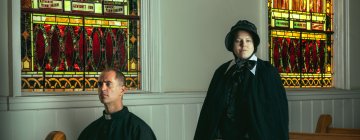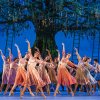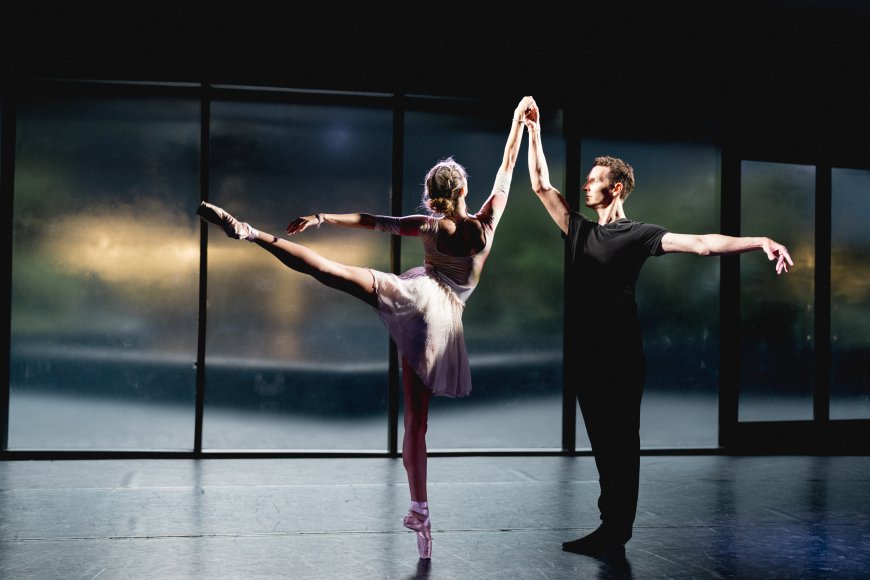
Sergei Prokofiev wrote his first opera at 9 years old and started on his first ballet at 23. But former child prodigy Alma Deutscher, who turned 20 this past February, has a record to rival the Russian composer, having penned her first opera, Cinderella, at age 10 and now having completed her first ballet, The Euterpides.
The latter work, a commission from Lincoln Jones, director and choreographer of American Contemporary Ballet, is set to receive its world premiere on June 5 from the Los Angeles-based dance company and a 17-piece orchestra at the famed Television City in the Fairfax District. Performances run through June 28. The Euterpides, which Deutscher is slated to conduct on June 5 and 6, is paired on the program with George Balanchine’s 1935 masterpiece Serenade, which ACB is staging for the first time.
Jones explained how the double bill came about. “When I got the go-ahead on Serenade from the Balanchine Trust, it left me with space for a new ballet. This was in February, and I wrote Alma and asked if she could do a 12-minute ballet. Over the process, it ended up being 20 minutes.”
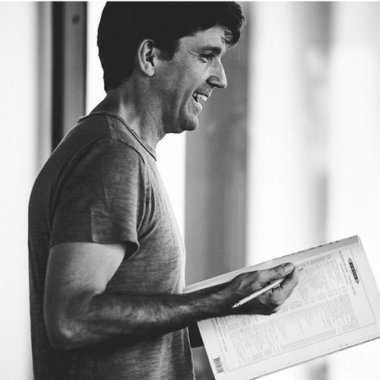
Inspired by Greek myth, the new work features five female dancers and one male dancer and promises to be another achievement in the Jones canon. Since ACB’s founding in L.A. in 2011, that output has included dozens of original choreographed pieces, such as The Rite (set to Igor Stravinsky’s music), Tchaikovsky’s perennial The Nutcracker Suite, and 2023’s Homecoming (which was reprised earlier this season).
Deutscher, who lives in Vienna, said in an email to SF Classical Voice that she was “very excited about the [commission] because of [my] passion for dancing. I also really liked the idea of [depicting] Euterpe, the muse of music, sending her daughters down from Mount Olympus to dance with a mortal. It’s wonderful and unusual to have a ballet where music itself is the core of the story.”
Much of the collaborative process took place across continents, via video chats, emails, and sound files. Jones described how early on, he made up names for 14 different musical goddesses — including Lyra (goddess of arpeggios), Syncopē (goddess of syncopation), and Paizia (goddess of cadenzas) — and then asked Deutscher to choose five, with that quintet becoming the basis for a libretto.
“From there,” he said, “we started talking about what format the ballet would take. The idea became [that] we would open with a theme and variations that all the goddesses dance to, each of their variations based on the particular musical element they represent.”
Jones marveled at how Deutscher was able to realize the concept so quickly, adding that she composes everything in her head. “She doesn’t write anything down until she has to, until people have to play it.”
He also highlighted how she was sensitive to the dancers’ needs. “I talked to her about the mechanics of ballet,” the choreographer said. “If it’s a fast solo variation, a dancer can only go for so long, so I told her to keep it within this time range. If it’s slower, in this time range. Once the ballet started to take shape, every variation [she composed] was perfect out of the box.”
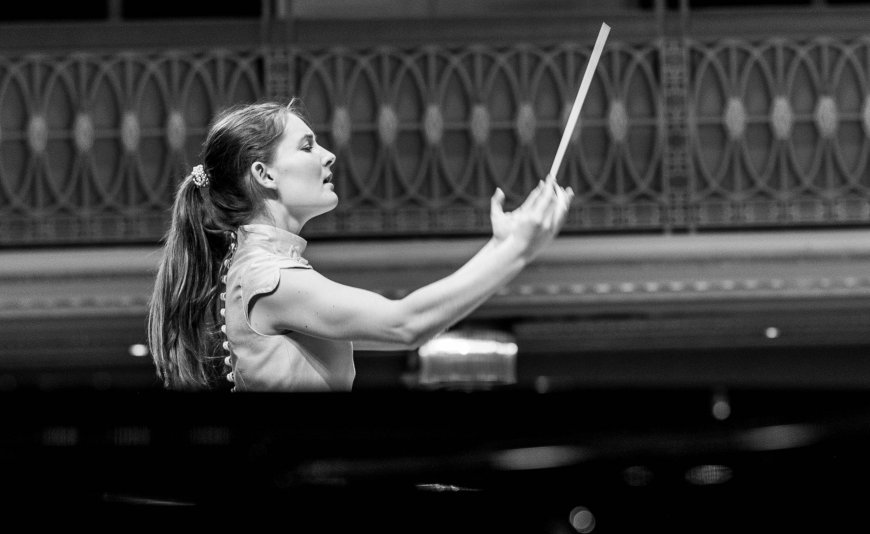
As for Deutscher, she found working with a choreographer for the first time “a fascinating experience. It was a wonderful creative collaboration from beginning to end, at all stages and on all levels, from the grand outlines to the smallest details.”
Live musical accompaniment, which is rarely found in small dance companies — ballet or otherwise — has always been part of ACB’s core mission.
For The Euterpides, the instrumentation is a string ensemble of eight violins, three violas, three cellos, and two basses, plus piano. Deutscher pointed out that “a string orchestra, of course, is a classic sound, as in Tchaikovsky’s and Dvořák’s Serenades for Strings. And some sections of the ballet are scored just for strings. The piano adds another contrasting color. It’s used sometimes soloistically and sometimes to support the orchestra.”
Deutscher, in addition to conducting the first two performances, is also leading the program’s musical interlude, the Overture to her Cinderella, which had its American premiere at Opera San Jose in 2017 (with a revival there in 2022).
The musical wunderkind is excited to be in L.A. and to see her ballet “come to life onstage. I absolutely love California, both North and South, and always can’t wait to come back. Next year, I’ll spend nearly two months again in San Jose conducting at the Opera there. And I’m really looking forward to doing another, even bigger project with ACB.”
As Jones so succinctly put it, “This girl knows how to write dance music.”
